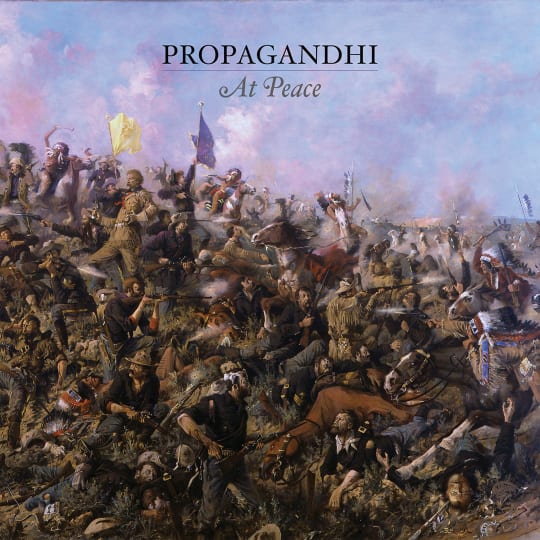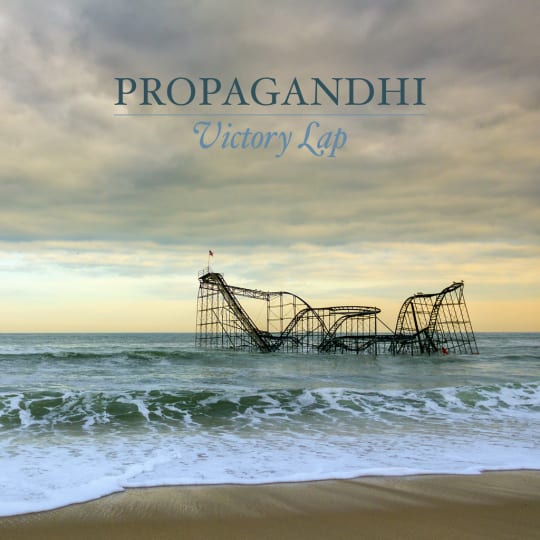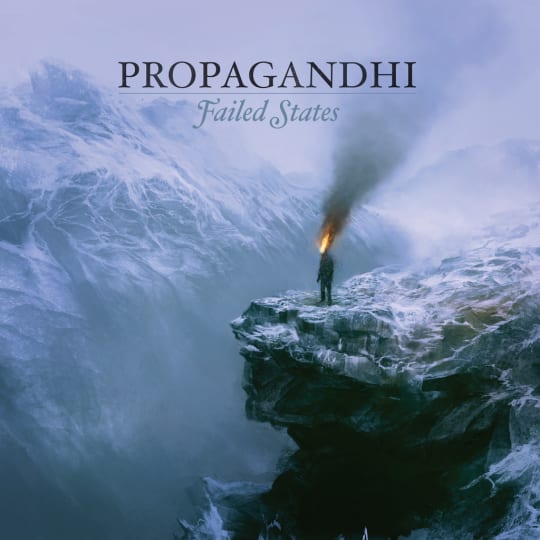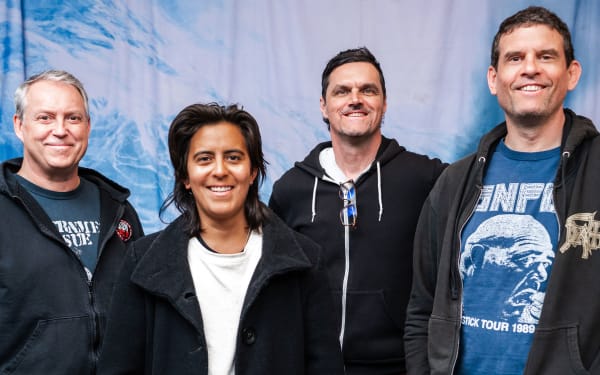Propagandhi Bio
“Speaking for myself, this record might be a snapshot of me deciding whether I’m going to live out the rest of my life as Eckhart Tolle or live out the rest of my life as Ted Kaczynski,” laughs PROPAGANDHI guitarist and vocalist Chris Hannah. In true PROPAGANDHI fashion, the Manitoba, Canada based outfit’s eighth album, At Peace is smart music for dangerous times. “Everything I’m singing about is still coming from being the same person that wrote and sang our first record How to Clean Everything in 1993,” Hannah states recalling the band’s snarky skate-thrash origins. “But what we’re putting into the songs now, probably reflects more despair than 30 years ago when we had similar perspectives, but with strands of hope and naivete. Now it’s the existential dread of eking out a life worth living in this completely failed society.”
At Peace was written and recorded as political storm clouds were beginning to darken in the months before Emperor Trump’s ascent to power. It’s an album of poetic and polemic songs written shortly before the American oligarch’s suggestion that PROPAGANDHI’s home country become the U.S.’s 51st State. Songs like the album’s apocryphal “Fire Season” presages the climate-change-driven wildfires that wiped out portions of Southern California. At its core, At Peace is an album of inconvenient and unavoidable truths that hit with all the subtlety of an Orwellian boot stamping on a human face forever.
With mixing completed at Blasting Room Studios by Jason Livermore (Rise Against, Hot Water Music) in December 2024, At Peace is a portrait of the uncertainty facing the four members of PROPAGANDHI— Hannah, drummer Jord Samolesky, bassist/co-vocalist Todd Kowalski and guitarist Sulynn Hago. From the opening clarion call of “Guiding Light” into the album’s evocative title track, there’s no mistaking that on their first album in eight years, PROPAGANDHI’s frontline social activism has been supplanted by a deeper sense of reflection. Nearly a decade (including two inactive years for Covid) later, the members of PROPAGANDHI have a lot on their minds. “We’re definitely not a band that responds well to someone telling us we need to put something out,” the frontman states. “That happens when we have something to talk about – and now is definitely the time for that.” One listen to the album and it’s clear. Even in these darkest days, At Peace remains pure PROPAGANDHI.
PROPAGANDHI’s earliest ambitions were as teenage heshers and punks in their hometown of Portage La Prairie, Manitoba. At first, Hannah and Samolesky were happy to toss around riffs, teen metal-punks starting a riot of their own. “When Jord and I first started playing together in the 80’s, I was intent on starting a thrash metal band,” says Chris. “I was a metalhead and Jord was a punk. I was hoping to sound like Kreator, Voivod and Celtic Frost but we couldn’t pull it off at the time. At the same time, I heard Bad Religion’s Suffer album and that sounded like Motorhead meets The Ramones and I thought, ‘OK, we can probably play this!’ I suppose that’s remained part of our DNA to now.”
PROPAGANDHI’s struggle has been one of never quite fitting in, but instead, kicking against punk’s musical confines and bro-punk conservatism. As early as 1996’s sophomore album, Less Talk, More Rock, where they openly announced their uncompromising pro-Feminist and Gay-positive stance on the album’s front-cover. PROPAGANDHI had no qualms about pissing off more than a few 90’s era Hurley-punks, to say nothing of antagonizing skinheads causing trouble at hometown shows. To this day they’ve never shied away from playing benefit shows or actively supporting marginalized political causes.
By the time the band arrived at 2009’s Supporting Caste, PROPAGANDHI had made a quantum leap from their earliest days. It’s a progression that hasn’t slowed down. With At Peace songs like “God of Avarice” or Stargazing” building upon the sonic landscapes of albums including Failed States (2012), Potemkin City Limits (2015) or Victory Lap (2017). Now with At Peace, PROPAGANDHI’s makeup of hardcore, punk and tech metal has given way towards a more reflective approach – tempered with an undercurrent of unease. “We’ve always advocated for radical social change,” says Chris. “We probably will get there but unfortunately at this point it’s unlikely to be from a non-violent mass mobilization of the citizenry acting in solidarity to abolish corporate authoritarian rule. It will probably be through ecological collapse, global thermonuclear war or plague. The writing appears to be on the wall.”
Still, PROPAGANDHI hasn’t totally given up hope. Like At Peace’s cover painting which depicts Custer’s Last Stand, the Canadian quarter is still infusing a dark humor with sly conceits like “Cat Guy”, a paean to societal identity – with a twist. “From my songwriting perspective, the two things I was thinking of was capturing a little bit of Judas Priest’s Firepower LP as if SNFU’s Chi-Pig was writing the lyrics,” laughs Hannah.
At its core At Peace is PROPAGANDHI’s plea for hope against hopelessness. A postcard from a broken zeitgeist. “Twenty years ago, we had a sense that things are fucked but that there could be a mass mobilization of people against the oligarchy, the billionaire class,” says Chris. “I don’t think that exists much in our music anymore and I don’t believe that mobilization is forthcoming. I hope to be proven wrong.” "





